Featured
 We Still Don’t Know Who Won, But Republicans Lost. By Matt Fuller and Sam Brodey / Mother Jones
We Still Don’t Know Who Won, But Republicans Lost. By Matt Fuller and Sam Brodey / Mother Jones
Republicans had hoped for a red wave. What they got looked more like purple rain.
As Tuesday night turned into Wednesday morning, what was once a foregone conclusion of the 2022 midterms was now up in the air. It’s possible, perhaps even more likely than not, that Republicans will take back the House of Representatives. And the GOP could still win the Senate. But it is also possible that Democrats and President Joe Biden will end up with an historic night. Read more
Related: Midterms 2022: Key takeaways from Election Day. By Sahil Kapur / NBC News
Related: Democrats Defy Gravity in Midterm Races. By NY Mag Staff
Related: Election Day voting went smoothly despite intimidation fears and conspiracies. By Miles Parks / NPR
Political / Social
 2022 Georgia Senate race: Raphael Warnock vs. Herschel Walker. By Caroline Linton / CBS News
2022 Georgia Senate race: Raphael Warnock vs. Herschel Walker. By Caroline Linton / CBS News
Georgia’s incumbent Democratic Sen. Raphael Warnock, who was first elected in a special election 2020, appears likely to face a runoff next month against Republican Herschel Walker in one of the most closely-watched battles of the 2022 midterms. CBS News estimates the Georgia Senate race as a toss-up, and a top state election official says he expects it to go to a runoff. There is a third-party candidate in the race, and if no candidate wins at least 50%, the runoff would be held Dec. 6. Read more
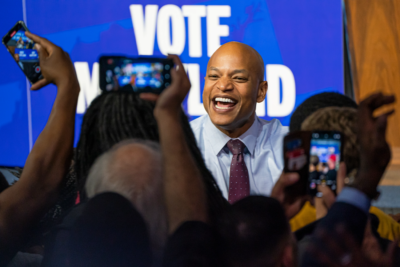 Wes Moore Makes History, As Nation Awaits Critical Georgia Races. By
Wes Moore Makes History, As Nation Awaits Critical Georgia Races. By
Maryland has elected its first Black governor, but the outcome of other key races could remain unknown for days.
Across the country, other Black candidates struggled to win over voters in the midterm elections, despite the record level of diversity on the ballots. Of the 11 Black major-party candidates who ran for U.S. Senate, six have conceded. Of the five who ran for governor, three have conceded. Some Black candidates made history on election night. Wes Moore, a Democrat from Maryland, became the state’s first Black governor. In Florida, Democrat Maxwell Frost, a 25-year-old activist, won his bid for the U.S. House, making him the youngest member of Congress. Read more
 Midterm election results 2022: Maxwell Frost is first Gen Z candidate elected to Congress, plus more firsts. By Li Zhou / Vox
Midterm election results 2022: Maxwell Frost is first Gen Z candidate elected to Congress, plus more firsts. By Li Zhou / Vox
Maxwell Frost, Maura Healey, and Sarah Huckabee Sanders are among the candidates who’ve made history.
Maxwell Alejandro Frost, a 25-year-old community organizer, has officially become the first Gen Z member elected to Congress after winning a House seat in Florida’s 10th Congressional District. Frost’s win notably adds to the body’s generational diversity: The average age of a House member is currently 58, and more than 80 percent of members are Gen X or baby boomers. Frost’s victory — which was driven by his advocacy for stronger gun control laws and support for progressive policies like Medicare-for-all — strengthens the representation a younger set of voices, which tend to lean more liberal, will have in Congress. He will be the first Afro-Cuban person in Congress as well, adding to the diversity of a body that is still more than 75 percent white. Read more
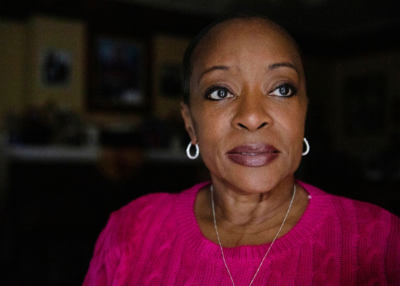 How Tennessee Disenfranchised 21% of Its Black Citizens. By Bianca Fortis / ProPublica
How Tennessee Disenfranchised 21% of Its Black Citizens. By Bianca Fortis / ProPublica
While many states have made it easier for people convicted of felonies to vote, Tennessee has gone in the other direction. Shown is Leola Scott at her home in Dyersburg, Tennessee Credit:Ariel Cobbert for ProPublica
One in five Black Tennesseans are like Scott: barred from voting because of a prior felony conviction. Indeed, Tennessee appears to disenfranchise a far higher proportion of its Black residents — 21% — than any other state. The figure comes from a new analysis by the nonprofit advocacy group The Sentencing Project, which found that Mississippi ranks a distant second, just under 16% of its Black voting-eligible population. Tennessee also has the highest rate of disenfranchisement among its Latino community — just over 8%. Read more
Related: Tennessee Slavery Vote Results Leave Internet Aghast. By Khaleda Rahman / Newsweek
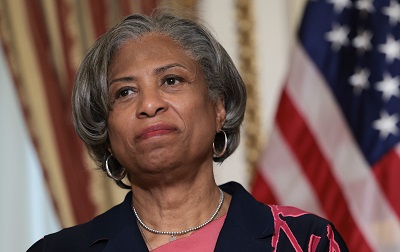 Black representation a key issue in Michigan’s 13th District. By Quinn Klinefelter / NPR
Black representation a key issue in Michigan’s 13th District. By Quinn Klinefelter / NPR
For the first time in about 70 years, Detroit won’t have a Black Democrat in Congress. Shown is Michigan’s only current Black member of Congress, Democrat Brenda Lawrence, is retiring, leaving an open seat to represent much of Detroit.
That left an open seat to represent much of the Motor City. And the candidate who emerged from the district’s crowded Democratic primary in August as Lawrence’s possible successor is not an African American. At a recent get-out-the-vote rally inside a Detroit high school, Lawrence worried that the city could pay a price if no Black Democrat replaced her. “I’m the vice chair of the Congressional Black Caucus,” she said. “And I know there are often issues that directly impact us left off the table. If you don’t have the Black representation, you don’t get a voice.” Read more
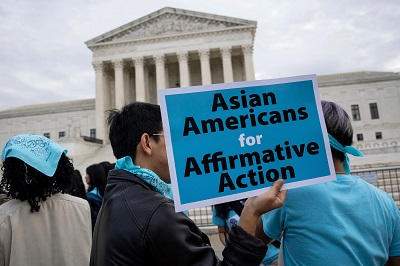 Affirmative Action and the Supreme Court’s Troubled Treatment of Asian Americans. Jeannie Suk Gersen / The New Yorker
Affirmative Action and the Supreme Court’s Troubled Treatment of Asian Americans. Jeannie Suk Gersen / The New Yorker
Students for Fair Admissions is one of only a few Supreme Court cases about the rights of Asian Americans. But what will it achieve on their behalf?
The Harvard and U.N.C. cases, in which the Court is expected to undermine or eliminate race-based affirmative action, are among the few Supreme Court cases in history that explicitly involve Asian Americans. The cases address Asian Americans’ uncertain place in American society, and the Court is considering them in a period of increased anti-Asian violence. I am an Asian American supporter of affirmative action who attended élite universities, and the first Asian American woman to be tenured at Harvard Law School. Read more
 Native American children’s protection against adoption by non-Indian families is before the Supreme Court. By Kirsten Matoy Carlson / The Convertsation
Native American children’s protection against adoption by non-Indian families is before the Supreme Court. By Kirsten Matoy Carlson / The Convertsation
The Supreme Court is about to hear arguments about the constitutionality of a 1978 law enacted to protect Native American children in the U.S. and strengthen their families.
That law, the Indian Child Welfare Act, was originally passed by Congress in response to requests from tribal leaders and other advocates for Native Americans to stop states from removing Indian children from their families. Now, in the case before the Supreme Court, non-Indians seeking to adopt or foster Indian children have challenged provisions of the law. The non-Indians say the law illegally discriminates against the Indian children based on their race and tells state officials what to do. As a federal Indian law scholar and the mother to two Indian children, I know that Indian status is a political, not a racial, designation. Read more
Related: Race Question in Supreme Court Adoption Case Unnerves Tribes. By Jan Hoffman / NYT
 Jackson, Mississippi arson suspect arrested in fires at Black churches. By Joshua Williams / Clarion Ledger
Jackson, Mississippi arson suspect arrested in fires at Black churches. By Joshua Williams / Clarion Ledger
One of seven overnight fires set overnight completely destroys Epiphany Lutheran Church in Jackson Miss., Nov 8, 2022.
Mayor Chokwe Antar Lumumba said at Tuesday’s city council meeting that the fires are “believed to be arson.” “We don’t know who or why,” Lumumba said before a suspect had been identified, adding that firefighters from stations 5, 14 and 22 responded to the blazes. Responding to speculation that the timing may be election related Lumumba said, “it is too early in the investigation to know what the motive may be.” Read more
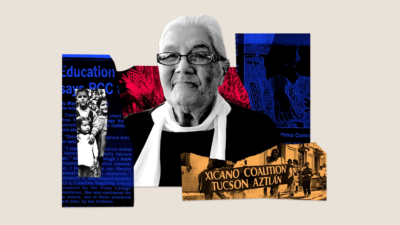 Ethnic Studies Faces Threats Again in Arizona. That Won’t Deter the Woman Who Helped Create It. By Fernanda Echavarri / Mother Jones
Ethnic Studies Faces Threats Again in Arizona. That Won’t Deter the Woman Who Helped Create It. By Fernanda Echavarri / Mother Jones
A tribute to historian and humanitarian Raquel Rubio-Goldsmith.
One of the most intense races in Arizona this midterm election concerns public education: Republican Tom Horne, the architect of a state law used to ban Tucson Unified’s Mexican American Studies classes a decade ago, is back on the ballot hoping to get reelected as state school superintendent. He’s challenging incumbent Kathy Hoffman. But for Raquel Rubio-Goldsmith, considered by many to be “mother of ethnic studies,” the discipline Horne and other Republicans so despise, discussions about race and historical context are crucial to education—and to the rights of the more than two million Mexicans, Mexican Americans, and Latinxs who make up more than 30 percent of Arizona’s population. Read more
 How mixed-race neighborhoods quietly became the norm in the U.S. By Ted Mellnik and Andrew Van Dam / Wash Post
How mixed-race neighborhoods quietly became the norm in the U.S. By Ted Mellnik and Andrew Van Dam / Wash Post
Deep in the bowels of the nation’s 2020 Census lurks a quiet milestone: For the first time in modern American history, most White people live in mixed-race neighborhoods.
This marks a tectonic shift from just a generation ago. Back in 1990, 78 percent of White people lived in predominantly White neighborhoods, where at least 4 of every 5 people were also White. In the 2020 Census, that’s plunged to 44 percent. Large pockets of segregation remain, but as America’s White population shrinks for the first time and Hispanic, Asian, Black and Native Americans fuel the nation’s growth, diverse neighborhoods have expanded from urban cores into suburbs that once were colored by a steady stream of White flight from inner cities. Read more
Ethics / Morality / Religion
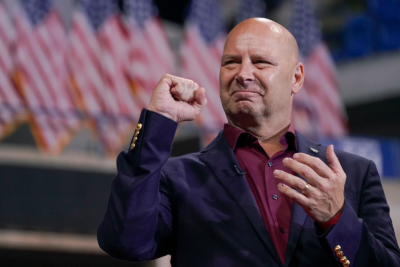 Despite Mastriano’s loss, don’t count out Christian nationalism. By Jack Jenkins / RNS
Despite Mastriano’s loss, don’t count out Christian nationalism. By Jack Jenkins / RNS
‘Winning a race like Mastriano’s in Pennsylvania, leaning on Christian nationalism, is harder than, perhaps, a congressional seat in the South,’ said sociologist Andrew Whitehead.
Political operatives were keeping an eye on Mastriano for at least one reason: how the Pennsylvanian deployed Christian nationalist themes to secure the hard-line religious right base. Mastriano broke out of the Republican primary pack by cloaking himself in one of the most vocal strains of Christian nationalism: anti-pandemic restrictions, pro-conspiracy theories about the 2020 election and dubious of separation of church and state. Read more
 More Americans Want Their Church to Share Their Politics | News & Reporting. By Aaron Earls / Christianity Today
More Americans Want Their Church to Share Their Politics | News & Reporting. By Aaron Earls / Christianity Today
As churchgoers head to the ballot box for midterm elections, most expect the rest of their congregation to be voting the same way they do.
“Studies have shown that voting patterns and political affiliation correlate with the type of church and amount of church involvement someone has,” said Scott McConnell, executive director of Lifeway Research. “But when asked if churchgoers want political similarity to flow back into their church relationships, this is desirable for only half of churchgoers.” Read more
 Traditionalist Catholics must reckon with antisemitism in their ranks. By Rebecca Bratten Weiss / NCR
Traditionalist Catholics must reckon with antisemitism in their ranks. By Rebecca Bratten Weiss / NCR
Last month a Twitter account called @GKCdaily, which regularly posts quotations from English writer G. K. Chesterton, tweeted a quote from the writer’s 1916 essay “Two Cranks and a Cosmopolitan.” The quotation was: “It is not that Jews are traitors, but rather that traitors are Jews.”
The Catholic Church formally rejected antisemitism in the Second Vatican Council document Nostra Aetate (The Declaration on the Relation of the Church to Non-Christian Religions). But this is just the first step toward repentance and reconciliation. The church will be unable to make further progress in righting this wrong if we tolerate antisemitism in our faith communities. Read more
 Evangelical voters could be key to fixing US immigration system. By Daniel Darling / USA Today
Evangelical voters could be key to fixing US immigration system. By Daniel Darling / USA Today
Among the evangelicals polled, 71% said it is imperative for Congress to pass immigration reform.
A record number of migrants – border agents recorded 2.4 million encounters – crossed the U.S.-Mexican border illegally in fiscal year 2022, which ended Sept. 30. Americans are increasingly frustrated with the Biden administration’s hapless border policy. It’s a top issue as voters go to the polls Tuesday in the midterm elections. Evangelicals are among the most influential of those voters and, in new data from Lifeway Research, they told pollsters that they’d like the nation’s leaders to stop posturing and start acting to fix a clearly broken system. Among the evangelicals polled, 71% said it is imperative for Congress to pass immigration reform. Read more
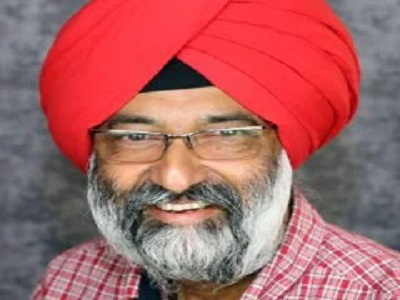 The silence of the witnesses hurt more than the shouted bigotry. By
The silence of the witnesses hurt more than the shouted bigotry. By
Suggestions for what to do when you encounter someone being harassed.
Recently, I visited my local DMV to renew my driver’s license. As I waited in a crowded room of about 25 people, a middle-aged man with a graying beard sat a couple of chairs away from me. Before he could even get settled, he aggressively asked, “Are you from India?” Though startled, I replied I was but that I’ve been living in the U.S. for decades. Seemingly encouraged to continue, he followed up in an even more aggressive tone and asked, “Are you Muslim?” And what about the question “Are you from India?” Are white immigrants from Europe also asked this question on the basis of their looks? No, they are not. After living in Central Ohio for over 30 years, will I ever become American enough? Read more
Historical / Cultural
 On War and U.S. Slavery: Enslaved Black Women’s Experiences. By Karen Cool Bell / AAIHS
On War and U.S. Slavery: Enslaved Black Women’s Experiences. By Karen Cool Bell / AAIHS
“Soldier examining newspaper by torchlight as others watch, Civil War era” (The New York Public Library Digital Collections)
The experiences of enslaved women and girls in the wars of the United States has garnered increased scholarly attention, most recently with the publication of Karen Cook Bell’s Running from Bondage: Enslaved Women and Their Remarkable Fight for Freedom in Revolutionary America (2021); and Thavolia Glymph’s The Women’s Fight: The Civil War Battles for Home, Freedom, and Nation (2020). Conventional military history has focused on those engaged in the planning and execution of the fighting, with occasional forays into the higher reaches of the political domain. Only relatively recently have scholars added the dimension of non-combatants—both by studying their perspective on warfare and the impact of conflicts on non-combatants. Read more
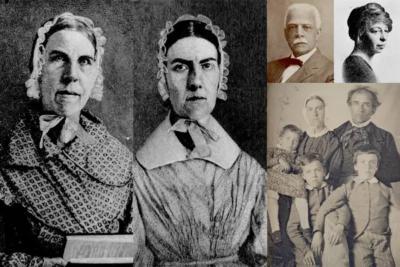 ‘The Grimkes: The Legacy of Slavery in an American Family.’ By Drew Gilpin Faust / The Atlantic
‘The Grimkes: The Legacy of Slavery in an American Family.’ By Drew Gilpin Faust / The Atlantic
The abolitionists have long been portrayed as heroes. A new book views them, and their family, in a different light.
The historical record offers occasional glimpses into the tortured dynamics of families “Black and white.” Annette Gordon-Reed’s acclaimed work on Jefferson ranks as one of the most notable of these explorations. But the history of another southern lineage, which Kerri K. Greenidge examines in her new book, The Grimkes: The Legacy of Slavery in an American Family, is perhaps even more revealing of the way human bondage shaped and deformed families, as well as the lives of those within them. Read more
 Black Journalists and The Great Migration. By Tichaona Chinyelu / AAIHS
Black Journalists and The Great Migration. By Tichaona Chinyelu / AAIHS
Coined in 1897, the phrase “all the news that’s fit to print” is a motto of the newspaper industry designed to reflect its impartiality in reporting the news. However, 1897 also constitutes part of the Jim Crow era during which the Southern white newspaper industry tended to ignore news related to or involving Black people. Into that segregated vacuum grew syndicates like the Scott News Syndicate (SNS), the subject of Thomas Aiello’s book, Practical Radicalism and the Great Migration: The Cultural Geography of the Scott News Syndicate (University of Georgia Press, 2023). Read more
 ‘Black Panther 2’ review: ‘Wakanda Forever’ is a profound, action-packed take on life and legacy. By Brian Truitt / USA Today
‘Black Panther 2’ review: ‘Wakanda Forever’ is a profound, action-packed take on life and legacy. By Brian Truitt / USA Today
The face of the late Chadwick Boseman – and his beloved character T’Challa – appears early in the sequel “Black Panther: Wakanda Forever,” on memorial murals and that nifty Marvel Studios intro. But his presence and legacy is profoundly felt throughout the film, as various characters (and the audience) deal with grief and move on with their lives in the face of adversity – personal and superheroic. Read more
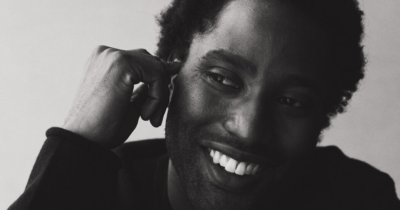 John David Washington Gets an Education in ‘The Piano Lesson.’ By Dave Itzkoff / NYT
John David Washington Gets an Education in ‘The Piano Lesson.’ By Dave Itzkoff / NYT
The actor adds to his body of knowledge with a starry production of the August Wilson play and a once-in-a-lifetime moment with Robert De Niro on “Amsterdam.”
Washington is by no means a novice actor. At 38, he has already starred in films like Spike Lee’s true-crime drama “BlacKkKlansman” and Christopher Nolan’s mind-bending, time-twisting adventure “Tenet.” But he is a newcomer to the Broadway stage, and in “The Piano Lesson,” he is making his debut with a demanding and poignant August Wilson play, in a high-profile production featuring the husband-and-wife team of Samuel L. Jackson (who co-stars in it) and LaTanya Richardson Jackson (who directed it). Despite his lack of theater experience, Washington has drawn raves for his performance. Read more
Sports
 US basketball star Brittney Griner transferred to Russian penal colony. By Guardian Staff
US basketball star Brittney Griner transferred to Russian penal colony. By Guardian Staff
US basketball star Brittney Griner was transferred last week from a detention center outside the Russian capital and is on her way to a penal colony, her legal team said on Wednesday.
The two-time Olympic gold medalist was arrested on 17 February, a week before Russia sent troops into Ukraine, at a Moscow airport with vape cartridges containing cannabis oil, which is banned in Russia. The White House has called her detention “wrongful”. She was sentenced on 4 August to nine years in a penal colony on charges of possessing and smuggling drugs. Read more
 The NBA’s Hypocrisies Are Sabotaging Its Response to Kyrie Irving. By Dave Zirin / The Nation
The NBA’s Hypocrisies Are Sabotaging Its Response to Kyrie Irving. By Dave Zirin / The Nation
The league won’t acknowledge its own culpability for the current climate of hate.
The Brooklyn Nets have decided that Kyrie Irving is “not fit to associate” with their team for five games because he posted an anti-Semitic video called Hebrews to Negroes. Following Irving’s apology on Instagram—after he failed to apologize to the media twice—the team laid out a set of conditions for him to return that seem designed to ensure that if he refuses, it could mean the end of his career. Read more
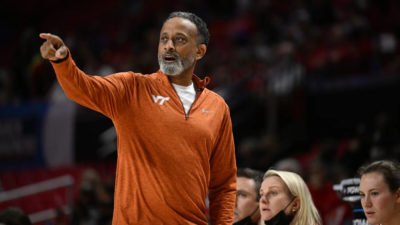 Virginia Tech’s Kenny Brooks has become ‘the standard’ for Black male coaches in women’s college basketball. By Sean Hurd / Andscape
Virginia Tech’s Kenny Brooks has become ‘the standard’ for Black male coaches in women’s college basketball. By Sean Hurd / Andscape
Brooks has the Hokies on the rise while increasing his advocacy for aspiring Black coaches
A knack for coaching has always been ingrained in Brooks, who has molded a youthful curiosity into a distinguished 20-year head coaching career. Entering his seventh year as the head coach of Virginia Tech, Brooks is leading one of the most intriguing teams in women’s college basketball – a team that he has transformed from a conference bottom-feeder to a national target. He’s also done it as one of the few Black male head coaches at the Division I level. He’ll walk the sideline this season as the only Black male head coach of a power conference program. Read more
Site Information
Articles appearing in the Digest are archived on our home page. And at the top of this page register your email to receive notification of new editions of Race Inquiry Digest.
Click here for earlier Digests. The site is searchable by name or topic. See “search” at the top of this page.
About Race Inquiry and Race Inquiry Digest. The Digest is published on Mondays and Thursdays.
Use the customized buttons below to share the Digest in an email, or post to your Facebook, Linkedin or Twitter accounts.